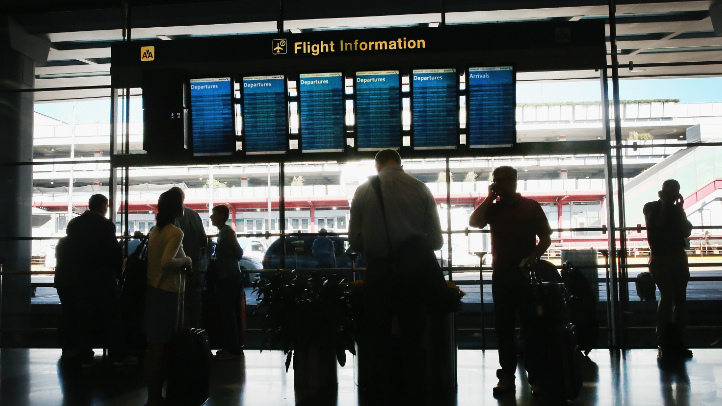An infectious disease expert at the University of Chicago Medicine explained why the coronavirus will likely get worse as colder weather approaches.
According to Dr. Emily Landon, the ability for the coronavirus to spread relies on the air's capability to hold moisture.
Landon explained that warmer air is more humid and, thus, holds more moisture. As air cools down, it doesn't hold as much moisture, she said.
"Humidity keeps those droplets that are coming out of our mouth and our nose juicy, and when they're wetter, they weigh more and they fall to the ground closer," Landon said.
The expert added that cooler, drier air means droplets are smaller and lighter, leading them to typically linger in the air longer.
"That's that airborne transmission that you keep hearing about and it's true. fall and winter weather literally make COVID more transmissible," Landon said.
As temperatures cool down, more people have moved to dining indoors, which Landon said is a major spreading spot of the coronavirus. She said "there's no way around" Gov. J.B. Pritzker's recent order to shut down indoor bar service and dining in most regions in Illinois.
Local
"Over 100 (coronavirus) cases were linked to one bar in Michigan in a week. And over the summer in Minnesota, 29 bars and restaurants started clusters that spread throughout the community" Landon said. "Shutting down bars and restaurants and putting in mass mandates changed the trajectory of the pandemic in Arizona, Texas, Florida, San Diego, Washington, DC, Illinois, I could go on."
Officials said the major issue with bars and restaurants is the need to remove a mask in order to eat or drink, which could lead to a further spread of the coronavirus.
Landon said the spreading is not the fault of any particular restaurant, but rather that the spread is inevitable. She reminded that people with the coronavirus are contagious before experiencing symptoms.
"The reality is, that restaurant can be perfectly safe from 6 to 8 p.m. and become a super spreader event from 8 to 10," Landon said. "It all depends on whether or not someone with COVID walks in the door."
Pritzker defended his decision on Thursday to close indoor dining in many Illinois regions, saying there are dozens of studies and articles on outbreaks in bars and restaurants categorizing the establishments as "spreading locations."
Republican lawmakers in Lake and McHenry counties, where increased coronavirus restrictions are set to begin Saturday, said they want to see data proving restaurants are a main contributor in coronavirus spread in their region.
In his briefing Thursday, Pritzker said his team has been providing data everyday he hosts a conference. He added that they are not able to be completely certain where an individual contracted the virus; but, through contact tracing, they saw bars and restaurants were a consistent previous location.
The increased restrictions imposed on several regions include the suspension of indoor dining and bar service and a limitation on gathering sizes, which the governor and public health officials have said aims to "cut down on some of the highest high-risk activities until we bring down the positivity rate in a region once again."



